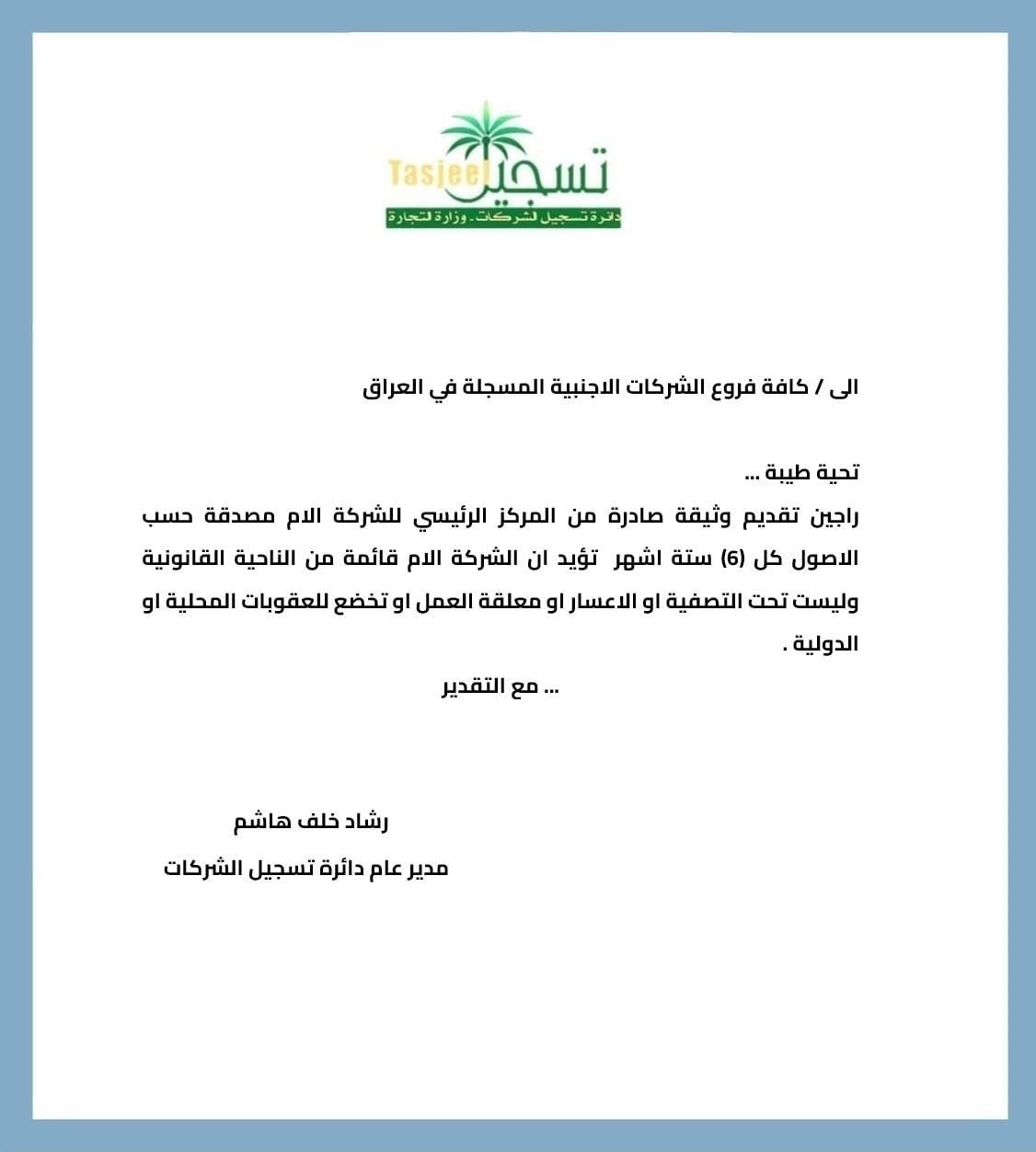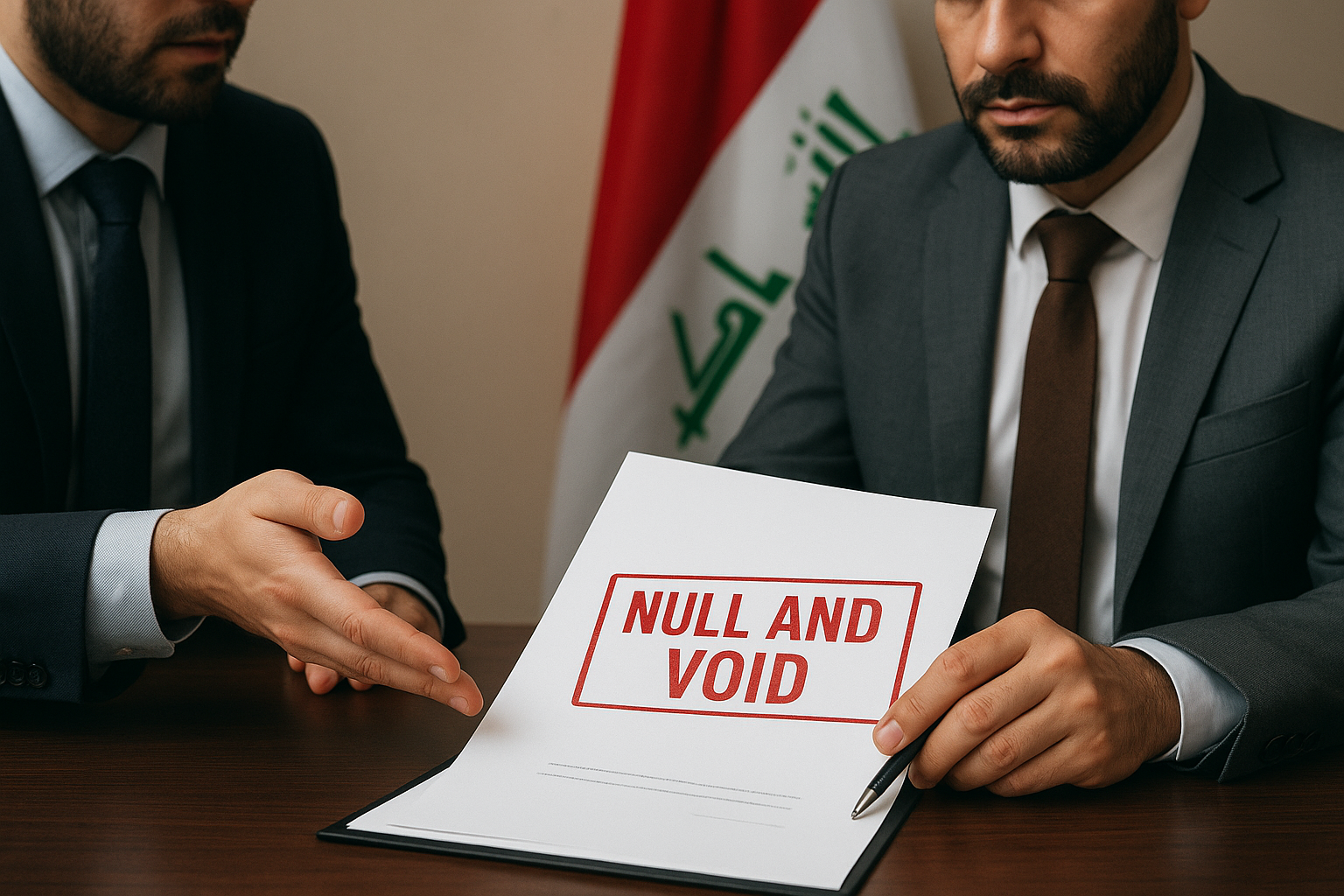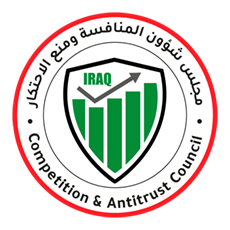New Iraq Compliance Rule: Mandatory Semi-Annual Certificate of Status for Foreign Company Branches
In a circular addressed to “All branches of foreign companies registered in Iraq,” the Department has introduced a significant new compliance requirement for foreign companies. This mandate requires the submission of a specific document from the parent company’s main office. The document must be:
The New Certification Requirement for Iraq Branch Compliance
-
Issued by the Main Headquarters: This must come from the main company’s headquarters, not the local Iraqi office.
-
Duly Certified and Authenticated: The document must undergo a rigorous document legalization for Iraq process. This involves certification from the parent company’s competent authority, followed by authentication from the foreign affairs ministry in the home country. The document must then be directed to the Iraqi embassy for further attestation, sent by mail to the Iraq Foreign Affairs Ministry, and finally archived with the Iraq Companies Registration Department.
-
Confirm Specific Statuses: The certificate of status must expressly state that the parent company is:
-
Legally established and operational.
-
Not being liquidated.
-
Not insolvent.
-
Not suspended from operations.
-
Not subject to any domestic or international sanctions.
-
-
Renewed Every Six Months: Importantly, this is not a one-time submission. The certified parent company document must be updated and resubmitted every six months.
.

Official directive (Ref: To / All branches of foreign companies registered in Iraq) mandating a semi-annual certified certificate of status from the parent company.*
Key Implications for Foreign Businesses in Iraq
This development marks a substantial shift in the regulatory environment for foreign investment in Iraq. The key implications include:
-
Increased Administrative Burden: Legal and compliance teams will be required to develop a rigorous, semi-annual process for obtaining, certifying, and delivering this document. Failure to maintain this cycle may result in penalties for non-compliance or the branch being considered non-compliant.
-
Enhanced Scrutiny and Transparency: The decision suggests a move by Iraqi authorities toward greater transparency and ongoing control of foreign parent businesses’ financial and legal status. The emphasis on sanctions compliance is particularly noteworthy, aligning with global trends.
-
Operational Risk: If a parent company faces financial hardship (liquidation/insolvency) or legal issues within a six-month period, the legal standing of its Iraqi branch may be jeopardized immediately upon the next mandatory filing.
-
Potential Delays: The authentication process for international documents can be time-consuming. Companies must plan well ahead of each six-month deadline to accommodate for processing delays at the Iraqi embassy and other authorities.
Foreign companies with branches in Iraq should take immediate action:
-
Notify the Parent Company: Inform the parent company’s legal and secretarial departments about this new recurrent requirement.
-
Establish a Compliance Process: Create a calendar-driven process for generating the status certificate, obtaining the required certifications (notarization, apostille), and submitting it to the Iraq Companies Registration Department.
-
Seek Local Iraqi Legal Guidance: To avoid operational disruptions, consult with local Iraqi legal counsel to verify the specific certification requirements and ensure the submitted documents fully comply with the directive.





